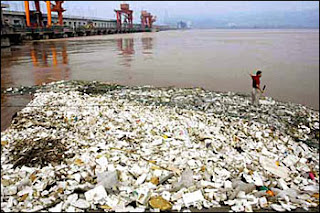 Hong Kong director Peter Ho-Sun Chan’s newly released movie, The Warlords, has generated not only tens of millions of yuan in box office revenue since its opening on Wednesday, but also comments from Chinese netizens regarding its political indications.
Hong Kong director Peter Ho-Sun Chan’s newly released movie, The Warlords, has generated not only tens of millions of yuan in box office revenue since its opening on Wednesday, but also comments from Chinese netizens regarding its political indications.The movie, set in the Taiping Rebellion in the late Qing Dynasty, featured the love-hate story among three men: General Pang (Jet Li) and his two sworn-blood bandit brothers, Zhao (Andy Lau) and Jiang (Takeshi Kaneshiro). Pang persuaded Zhao and Jiang, who themselves were initially rebelling peasants, to fight the Taiping Rebellion for the Qing court. In the end, Pang, in his pursuit of legitimate power, betrayed Zhao and Jiang, murdered Zhao and was later assassinated by Jiang upon becoming a powerful governor of the Qing regime.
Some of the online comments may be reflections of real anger, suggesting that the movie’s somewhat positive portrayal of anti-Taiping Rebellion militants is offensive to some Chinese viewers, who have been used to the idea that the Taiping movement is a revolution against the corrupt Qing regime. Other comments, however, may simply try to reveal what they see as the political indication of the movie by pretending to criticize it, to avoid online censorship.
A post titled “11 College Students Appeal: Cracking Down on the Counter-revolutionary Art of The Warlords” has been circulating on the Internet in the past couple of days, accusing the movie of defiling revolutionary peasants by portraying them as helping the corrupt Qing Dynasty to suppress the Taiping Rebellion. The authors called for young students to wake up and resist the influence of such “counter-revolutionary and consumerism culture.”
Pretending to write a public letter to the Chinese government and calling themselves “a group of patriotic, progressive, reasonable and kindhearted college students,” the authors signed their names on the Internet, although it’s not hard to tell that the names, containing words like “wen ge” (cultural revolution), “hong xin” (red heart), and “wei dang” (protect the party), are fake and somehow satirical.
It is not entirely clear why these people, who apparently also assailed Ang Lee’s Lust, Caution in a similar manner, posted such a comment, but they are not alone. Several other netizens, some of whom have watched the movie, also posted similar comments at different times on different online forums.
A “Menglong Professor” wrote on Tianya public forum that a slogan highlighted in the movie, “rob food, rob money and rob women,” was telling people to rob whatever they did not have, which implied the Communist revolution. In the movie, Zhao and Jiang were betrayed by General Pang, which, according to Menglong Professor, meant that once the revolution was successful, one had to be careful because your comrades and leaders may attack you from behind. “Isn’t this attacking our great Party and people’s army by insinuation?” Menglong Professor asked.
Another commentator, named “Obligation of Life,” listed six “counter-revolutionary” points of The Warlords, including being against the Taiping Rebellion and promoting slogans like “rob food, rob money, rob women” and “he who wants to be a bandit should try to be the biggest bandit,” which would “severely undermine the rejuvenation of the Chinese civilization and impede the establishment of a harmonious society in current China.”
One netizen said he was angry at the movie because it “all but sang the praise of three Qing lackeys who murdered Taiping soldiers” and “The Taiping Rebellion was a great peasant uprising movement.”
Most viewers seemed to like this movie and some of them called those political comments nonsense, because after all, it was only a movie that aimed to entertain.
This article is originally published on China Digital Times
Online comments:
http://cache.tianya.cn/publicforum/content/free/1/1072538.shtml
http://cache.tianya.cn/publicforum/content/free/1/1072926.shtml
http://www.neocha.com/sankin77/blog%2110412.html
http://shequ.cixi.cn/dispbbs.asp?boardid=212&replyid=749411&id=469896&skin=0&page=1&star=1
http://comment4.news.sina.com.cn/comment/skin/default.html?channel=yl&newsid=28-3-1355796&style=1&nice=0&rid=0&page=0&face=&hot=yl_default
The Warlords websitehttp://www.warlordsthemovie.com/en/index.htm
News about The Warlordshttp://www.chinanews.com.cn/yl/dyzx/news/2007/12-14/1105402.shtml
























